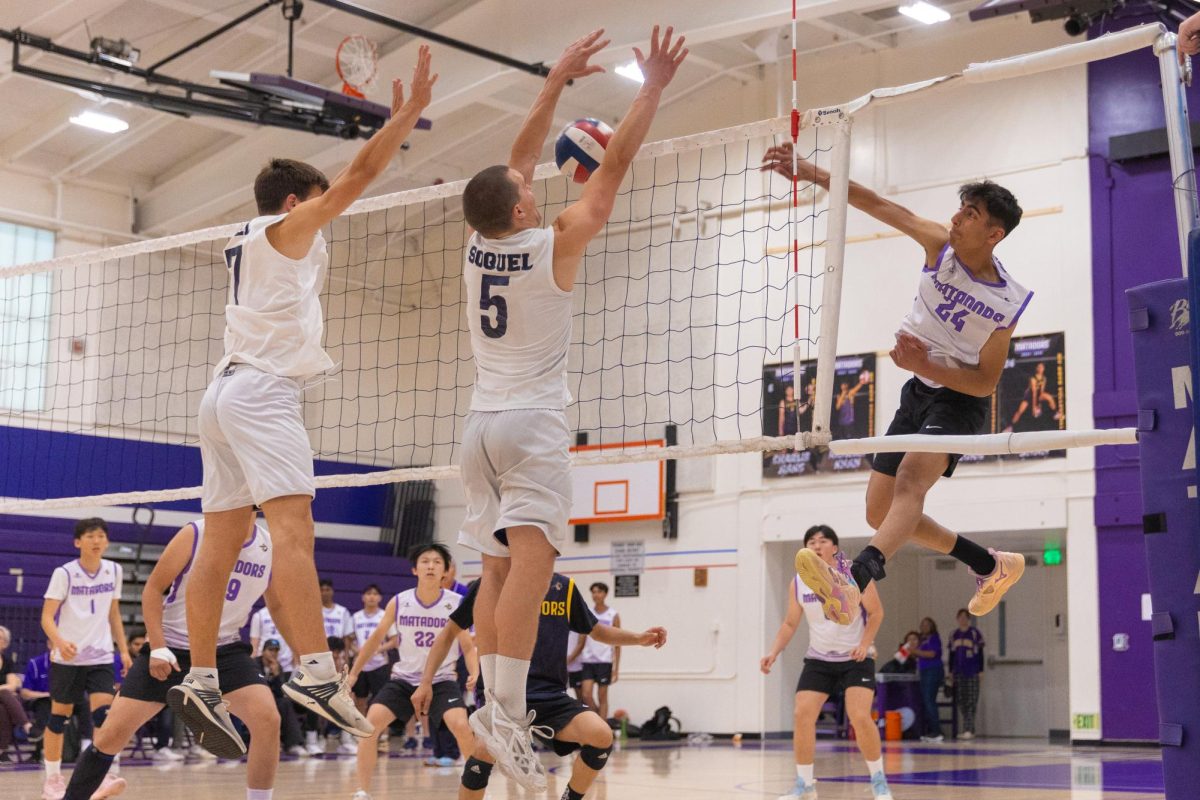All teams have traditions, but there is a murky area between harmless pranks and hurtful harassment. El Estoque explores team hazing: It's all fun until someone get hurts
Nine baseball players suspended at once. Nine out of 10 freshmen from the junior varsity team suspended from school, all because of one letter. But it wasn’t just any letter. The one in question, some believe, crossed the line between kidding around and bullying.
Hazing, or initiating new players on sports teams, is a tradition almost as old as the sports themselves. The objective of hazing is to give new players the chance to perform some sort of task in exchange for social acceptance on the team.
In an extreme example, in 2007, five students were suspended from a high school in Whitman, Mass. for tying up a freshman and hitting him repeatedly in the boy’s crotch.
While hazing at MVHS has not yet become violent, teams admit they do have initiation traditions. Freshmen on the girls volleyball team have been tricked into wearing nothing but a shirt and spandex to school just as unsuspecting field hockey players have come to first period to find that only the freshmen are wearing kilts.
But these rituals continue to disappear, as cases of harassment come to the administration’s attention.
Vice Principal Brad Metheany has been trying to break the hazing cycle by educating students, parents, and coaches, in addition to calling players to action.
“Teammates should be responsible for their teammates,” Metheany said. “That’s why it is called a team.” However, it seems that not everyone has gotten the message.
After baseball season ended in the 2007-2008 school year, a then-freshman wrote up a statement that he had all of the other freshmen on the team, with the exception of one, sign. The petition demanded that the one excluded player become the team’s unofficial servant. As soon as the originator got all of the signatures on paper, the oblivious teammate received the letter.
“The letter said that he was the one they were going to pick on,” teammate junior Kevin Wilson said. “Even the next year when he was a sophomore, they would still treat him like someone they didn’t want on the team.”
The letter was brought to the administration’s attention, and all of those who signed it were suspended from school. Later in the year, the individual who wrote the letter left MVHS for personal reasons.
“I don’t think it was supposed to be like that,” sophomore Max Morgan said. “It was supposed to be more of a joke.”
Whether the letter was a joke or serious, then junior varsity coach and current Dean of Students Michael Hicks did not take the situation lightly.
“He told us if anything like this ever happened again, we’d be kicked off the team instantly,” junior Spencer Lehrman said. Hicks declined to comment on the incident.
According to Metheany, if hazing causes harm to an individual, either mentally or physically, the joke, prank or game is no longer acceptable. In other words, once someone feels like a target or victim, what may have been intended as lighthearted fun becomes a punishable offense, which creates a gray area that teams may find it difficult to define.
“The person on the receiving end gets to decide if it is harassment or not,” Metheany said. “The school’s main job is to make sure that you’re safe and feel comfortable coming to school here.”







